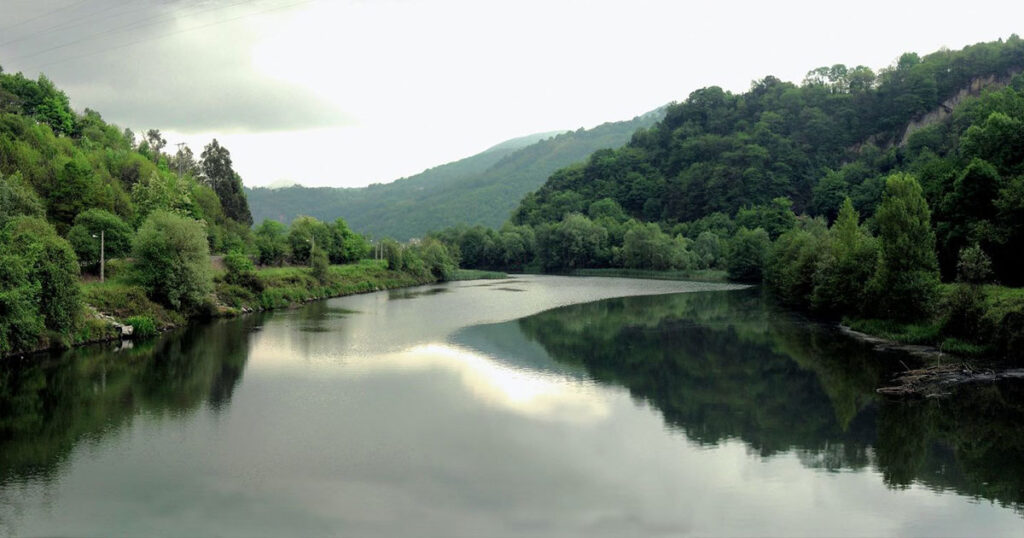
Driving home from Pravia, a town near the Asturias coast where I had gone with a friend to a woodworking trade show called Encuentros de la Madera, we crossed over the Río Nalón, and I looked down on the wide bed and shallow water and pebbled shore. Upstream, the channel would be narrower and the water faster, but here close to the mouth, the water barely moved. Not too much force in this river, I thought. We were halfway across the bridge when I gazed down upon the water.
A long mound of pebbles in the middle of the river made a kind of island, so that you might wade from the shore to this raised ground. Children would love to. I thought of my father then and our trips to Tennessee, where my grandmother was living. My dad drove from his home in Colorado to meet my two boys and me, flying in from Spain. Later he would drive us to Colorado, but first we got a motel near my grandmother’s retirement home, and we spent several days with her. One year we went to the caverns in Sweetwater to see the underground lake. Another year we drove through the Great Smoky mountains, to Gatlinburg. Twice we picnicked beside a river at the foot of the mountains, where my grandmother sat in a lawn chair beside a picnic table and watched while the boys splashed and played, and my father took pictures. I kept close to the boys, waving to my grandmother and flashing smiles at my dad. He wore the camera around his neck, raising it again and again. What was childhood like for my boys? I remember afternoons of homework, animals we kept, camping trips, lots of books read aloud, hikes with friends, but if I close my eyes, I see us as my father captured us in photos.
Keeping a photographic record is no small task. It requires attention to the subjects, to catch them at their best or most characteristic. “Doesn’t she look good?” Or, “Yes, he always makes that face!” But the pictures also pick out the moments that will be recalled over and over. We are a happy bunch, the pictures say, and both the images and the message are imported into my memory: my boys and I splashing in the motel pool and wading in the river; the boys following my dad’s instructions on how to skip a stone; the two boys scrambling around in the ball pit at a fast food restaurant; all of us eating pizza in a motel room; one of the boys wearing my grandmother’s stuffed toy monkey like a blindfold; both sitting rapt, listening to a story read aloud. A meal at the retirement home. Then inevitably came the goodbyes, my grandmother leaning into my dad’s side, his arm around her shoulders, as they faced the camera I now held. She was delighted, laughing, but close to tears. Will I see them again? she must have wondered, and, How long can these summer reunions go on? I might have wondered, too, when I hugged her again and turned away to climb into the car.
My grandmother’s death 15 years ago ended our visits to Tennessee. Instead summer became an entirely western experience. My father’s death two years ago has meant something bigger: the end of summer. It’s just not the same without him. Wait long enough and the world turns, the seasons pass, and summer comes again. But it isn’t a vacation without the man behind the camera, making us all live and live and live.

